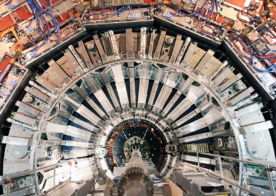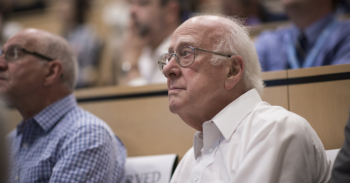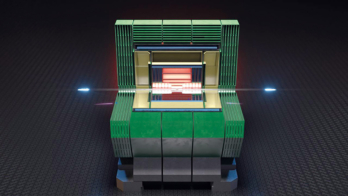Researchers at the Lawrence Livermore National Laboratory (LLNL) in California have made the most precise test so far of quantum electrodynamics (QED). In studies of highly ionized, lithium-like uranium, they have measured the two-loop Lamb shift for the first time (Beiersdorfer et al. 2005).
QED is a well-established theory that describes at the quantum level all phenomena involving the electromagnetic force. Its extremely accurate predictions have been tested by various experiments, including measurements of the tiny shift in the energy levels in hydrogen discovered by Willis Lamb in 1951, owing to the self-interaction of the electron. Tests of so-called one-loop QED (self-energy and vacuum polarization) confirmed the theoretical predictions with high precision, and theorists and experimentalists are now looking to evaluate higher-order QED processes.
Highly charged ions offer an opportunity for high-accuracy calculations of atomic properties within QED, in that they provide a strong-field environment and relatively simple spectra. These conditions allow high-precision measurements of some transitions. Moreover, measurements of lithium-like systems such as U89+ are more sensitive to higher-order QED terms than those of hydrogen-like systems.
Using the SuperEBIT high-energy electron-beam ion trap at LLNL, the researchers measured the 2s(1/2)-2p(1/2) transition in U89+ with an accuracy that is nearly an order of magnitude better than previously available. The team monitored X-ray emission from the ions with a high-purity germanium detector, and used a spectrometer specifically developed for this experiment for spectroscopy at extreme ultraviolet wavelengths.
The results allow the researchers to infer a two-loop Lamb shift in lithium-like U89+ of 0.20 eV. This is also in excellent agreement with the recent calculation of the two-loop Lamb shift for the 1s level in hydrogen-like U91+.
Further reading
P Beiersdorfer et al. 2005 Phys. Rev. Lett. 95 233003.





